The interconnectedness of sustainability, business, technology and Indigenous
wisdom emerged as key themes of the opening plenary at SB’24 San
Diego. In
an era of complexity shaped by
polycrises,
these discussions emphasize the urgent need to shift paradigms and embrace
regenerative approaches for a resilient
future.
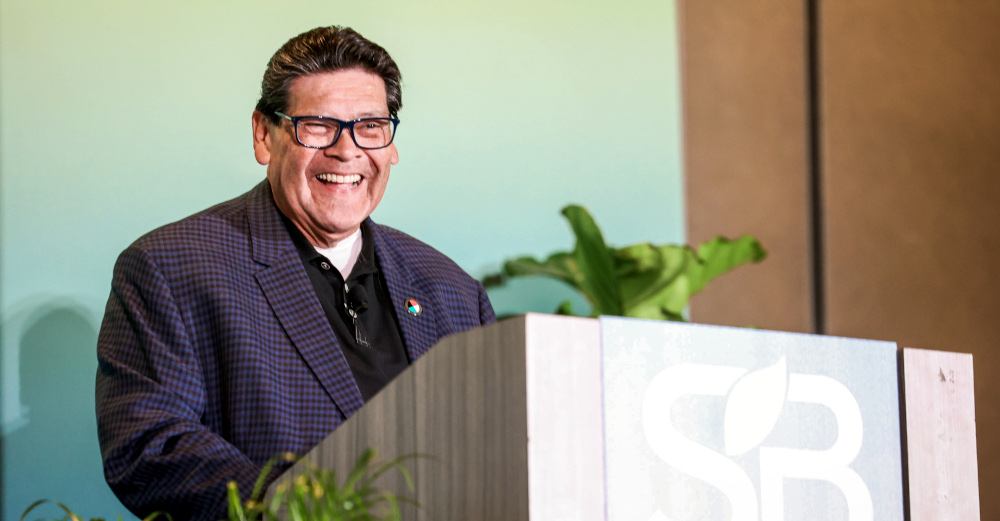 Robert J. (Cita) Welch, Jr.
Robert J. (Cita) Welch, Jr.
Day one coincided with Indigenous Peoples Day, and the opening plenary
highlighted the critical role Indigenous communities play in our efforts to save
our planet and its inhabitants. It began with a powerful
Haka performance by Te Tini a
Maui Kapa Haka, a Vancouver, BC-based group of
Māori dancers — to commemorate the addition of SB’s newest international
partner, SB Aotearoa; and a land
acknowledgment from Robert J. (Cita) Welch,
Jr.
— Tribal Elder of the Viejas Band of Kumeyaay
Indians,
which are native to the San Diego area. As Welch pointed out, though Indigenous
people make up only 5 percent of the global population, they protect 80 percent
of the world’s biodiversity. Their traditional knowledge has sustained
ecosystems for generations, making them essential partners in conservation and
sustainability efforts.
Reintegrating Indigenous wisdom
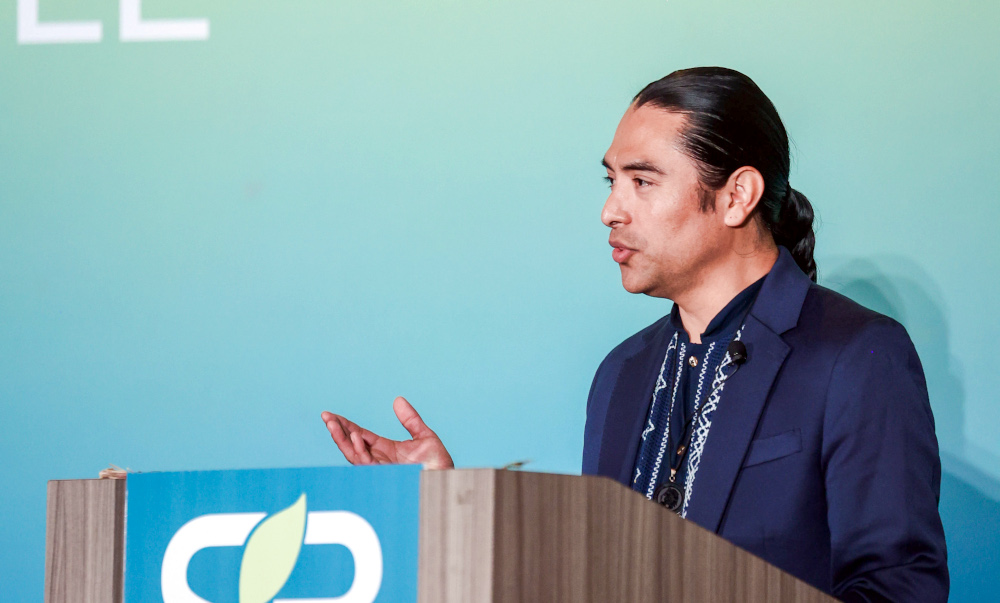 Estakio Beltran
Estakio Beltran
Emcee Aman Singh, Director of
Global Sustainability Communications for Walmart, then introduced the
evening’s keynote speakers. Estakio
Beltran, Partnerships
Advisor for the Office of Strategic Partnerships and Indian
Affairs at the US Department of the
Interior, highlighted the importance of business and government partnerships
with Native-led initiatives to preserve biodiversity and protect ecosystems.
These efforts, including leveraging federal funding for conservation projects,
demonstrate how Native knowledge can inform broader environmental and economic
initiatives. This can be seen in the America the Beautiful
Challenge – an initiative
to conserve 30 percent of US land and water by 2030 – where the Office of
Strategic Partnerships & Indian Affairs connected Tribal Nations by facilitating
partnerships, securing funding and integrating Indigenous priorities into
conservation efforts to protect lands and waters.
Complexity theory and systems thinking
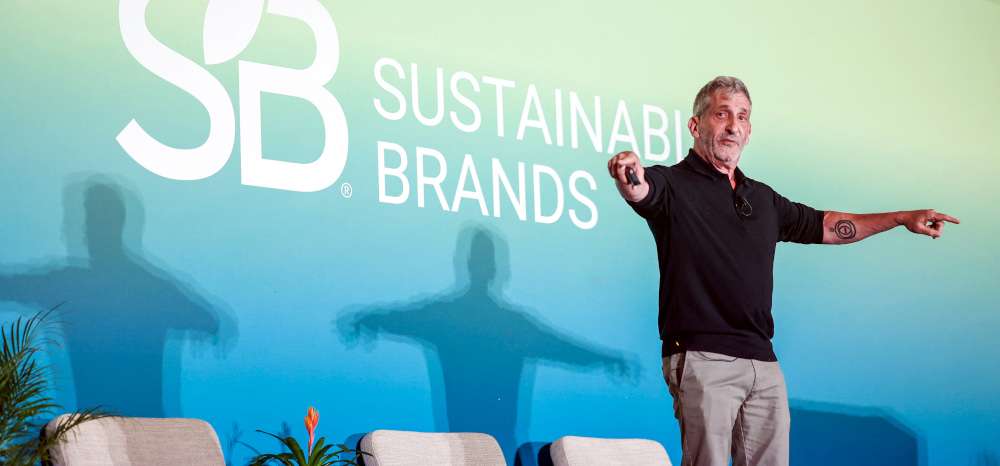 Neil Theise
Neil Theise
Next, Neil Theise —
Professor of Pathology at the NYU Grossman School of Medicine and author of
Notes on Complexity: The Scientific Theory of Connection, Consciousness, and
Being
— delved into complexity
theory,
which explains the interactions within adaptive systems. This theory is crucial
for understanding sustainability — as it underscores how individual actions can
influence larger, interconnected systems. Theise illustrated how everything from
urban
development
to corporate structures to a conference such as SB’24 follows the principles of
complexity. Systems are locally responsive but globally interdependent —
thriving on balance, adaptability and creativity. The unpredictability of
complex systems makes predicting long-term outcomes impossible, but small shifts
in behavior or design can lead to large-scale impacts.
From sustainability to regeneration
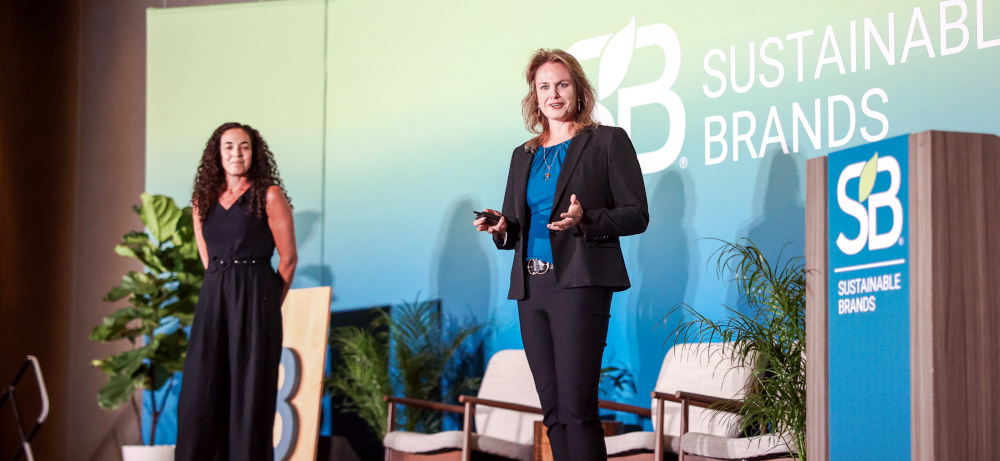 L-R: Danielle Lanyard and Jessica Groopman
L-R: Danielle Lanyard and Jessica Groopman
Next, Jessica Groopman and
Danielle Lanyard — co-founders of the
Regenerative Technology Project — emphasized the
need to transition from sustaining current systems to regenerating them. The
digital revolution has brought significant advances, but many technologies
continue exploiting the environment and people. Groopman and Lanyard called for
a new paradigm of technological innovation — one rooted in nature’s wisdom,
where we restore more than we extract. By rethinking the way we build, design,
and interact with technology, they propose a regenerative model that allows
healthy living systems, ensures fairness, and cares for the earth and
communities.
Supporting an equitable, regenerative and just economy
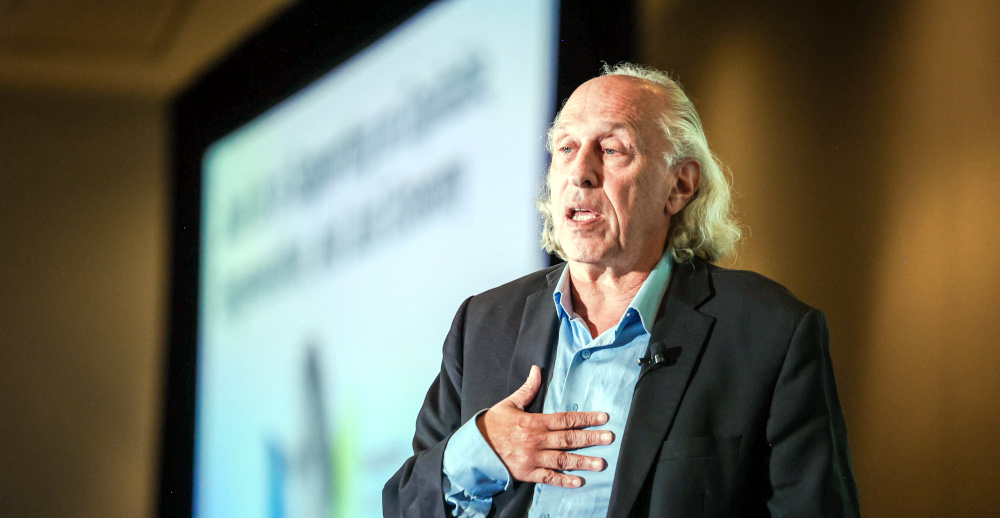 David Levine
David Levine
David Levine is co-founder
of the American Sustainable Business Network,
which brings together leaders and investors to develop policy solutions that
support and equitable, regenerative and just economy that benefits all. Through
programs including climate-smart grants and partnerships with tribal nations,
businesses are making strides in addressing both economic opportunities and
climate change. An initiative that grew out of this was the Growing GRASS
initiative,
which supports regeneratively raised cattle and buffalo across the nation by
ensuring producers have the financial support and market opportunities necessary
to implement and sustain climate-smart agricultural practices. The shift from
shareholder to stakeholder value, focusing on systemic health rather than
profits alone, is gaining traction as companies recognize the long-term benefits
of sustainable practices.
Making sustainable behavioral shifts irresistible
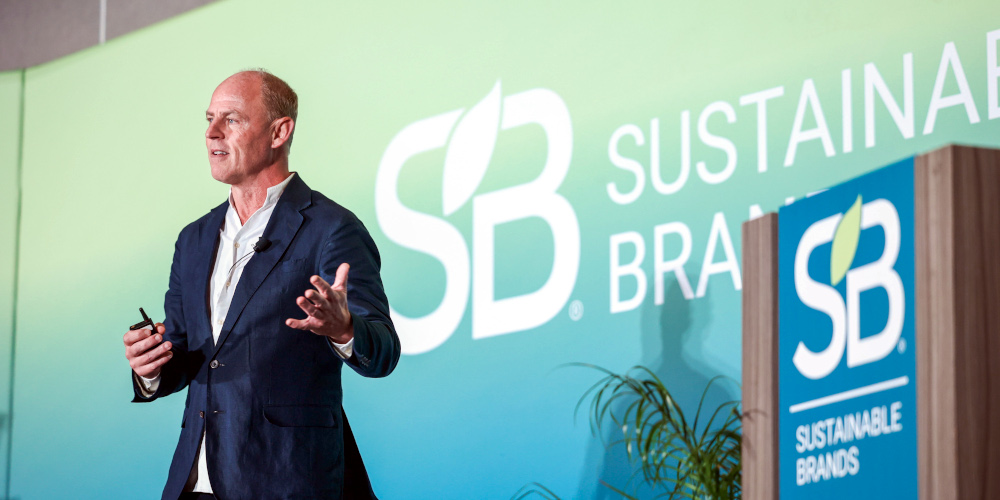 Frantz Beznik
Frantz Beznik
Frantz Beznik, R&D Head of
Sustainable Innovation at Procter & Gamble, then shifted
gears to share insights from on-the-ground — or in-the-house — research into
consumer water habits. He pointed out that while consumers may not prioritize
sustainability due to pressing financial concerns, they do desire efficient,
problem-solving products. Beznik shared insights gained through P&G’s work with
"50L Home" — a coalition of companies that also includes
Electrolux, IKEA and Kohler — to facilitate water-smart lifestyles,
and called for a paradigm shift where sustainability becomes not only a
necessity but also an irresistible choice for consumers.
As the tide continues to shift from commitments to action, collaboration and
innovation will continue to be essential for creating an equitable, resilient,
just and future-proof economy.
Get the latest insights, trends, and innovations to help position yourself at the forefront of sustainable business leadership—delivered straight to your inbox.
Impact Manager, Purpose + Sustainability
Formerly working in the advertising world in Kansas City, Hannah Zimmerman has now married her past experience with her passion for sustainability. When she isn't chasing her four-year-old daughter or helping companies along on their sustainability journey through consulting, reporting, communications and certifications, she is working on her master's in Sustainability through Harvard.
Published Oct 15, 2024 2pm EDT / 11am PDT / 7pm BST / 8pm CEST